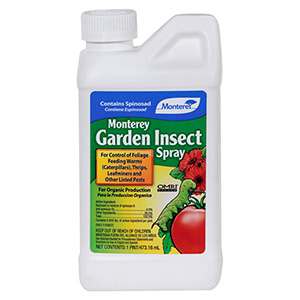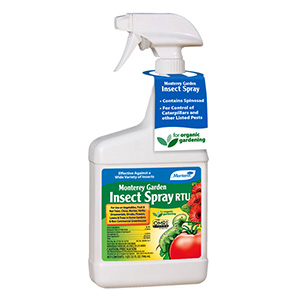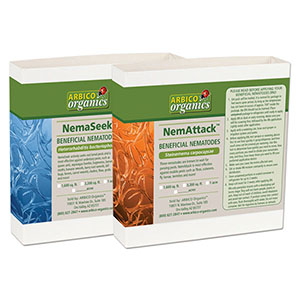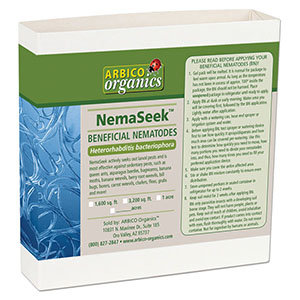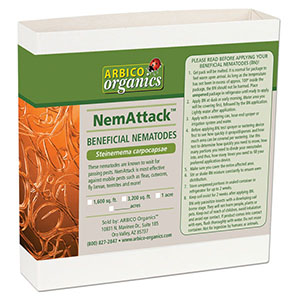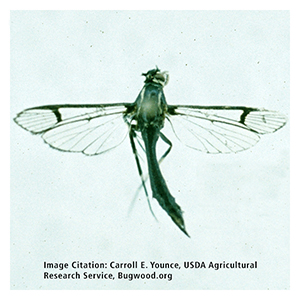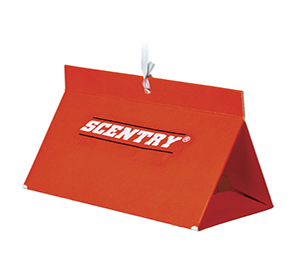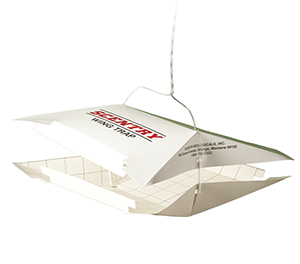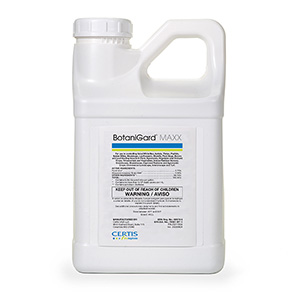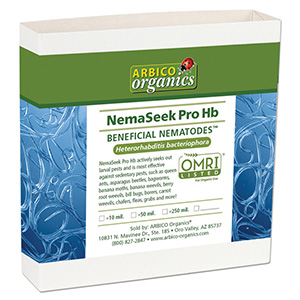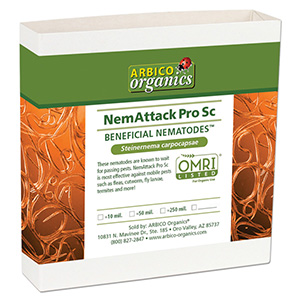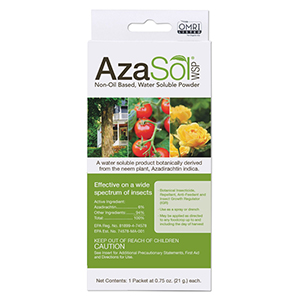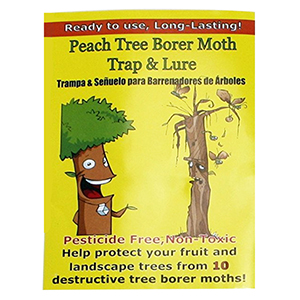Lesser Peachtree Borer
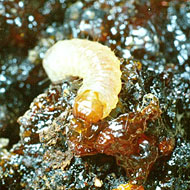
Synanthedon pictipes
The Lesser Peachtree Borer differs from the Greater Peachtree Borer in that the moths emerge over a long time during the summer. Also, the larvae do not confine their activity to the trunks, scaffold limbs and branches. Fruit tree hosts include peach, plum, sweet cherry, tart cherry, apricot and nectarine trees.
Lesser Peach Tree Borer adults are ½" long, have clear wings and resemble wasps. Their wingspan is &frac610; - 1 inch. Females are somewhat larger than males. Both sexes are metallic blue-black with pale-yellow bands. Their eggs are oval, cinnamon colored and less than one mm in size. Mature larvae are ¾" - 1 inch long, with a yellowish-brown head and creamy white body. The pupal stage is light brown and about ½" in length.
Cocoons, in which pupation occurs, are constructed of pieces of bark and larval excrement and held together by silk. Initially yellowish-brown in color, cocoons become rust brown as they age.
Lesser Peach Tree Borers overwinter in galleries under the tree bark as a larva in various stages of development ranging from young to nearly full-grown. In the spring, larvae resume feeding and complete their development beneath a thin layer of the bark surface. The use of Pheromone Lures and Traps is particularly useful in reducing their numbers.
Females of this species are attracted to damaged and previously infested trees and deposit eggs in cracks or under bark scales of wounded sites. Eggs hatch in 7 to 10 days and larvae burrow, feed and develop in the inner bark and cambium tissue for 40 to 60 days.
For more information about related pests please see our Borer Control page.
Photo courtesy of Clemson University Department of Entomology, Soils & Plant Sciences, Cooperative Extension Service.
-
$15.99–$124.49
-
-
$60.00–$500.00
-
$36.00–$270.00
-
$36.00–$270.00
-
$13.95–$24.75
-
$21.50
-
$6.50–$35.00
-
$115.00–$1,314.00
-
-
$52.00–$325.00
-
$52.00–$325.00
-
$29.95–$179.95
$20.00–$179.95 -
$19.99–$1,297.00
-
$46.99
-

